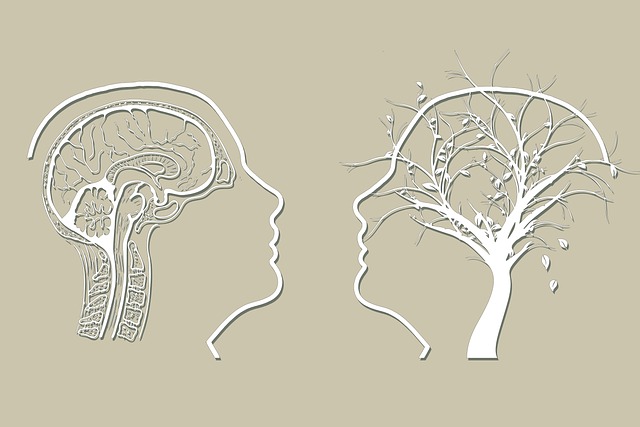Louisville Spiritual-Religious Issues Therapy leverages the RFM framework (Recovery, Flexibility, Mastery) to empower individuals in overcoming challenges and enhancing well-being. This structured approach promotes past trauma recovery, adaptability to change, and skill development for better control. Applied in workshops, training, and community outreach, RFM fosters stress management, reduces stigma, enhances cultural competency, and builds strong support networks. Through tailored sessions, mindfulness practices, self-care, and community engagement, clients develop resilience, find purpose, and navigate spiritual distress effectively.
Resilience is a powerful tool in navigating life’s challenges, and the RFM (Recovery, Flexibility, Mastery) model offers a unique framework for building this strength. This article explores how Louisville Spiritual-Religious Issues Therapy utilizes RFM exercises to foster resilience. We’ll delve into the core principles of each component: recovery from past traumas, adapting to change, and taking control. By integrating these practices into daily life, individuals can enhance their ability to cope with stress and adversity, ultimately improving overall well-being.
- Understanding RFM: A Framework for Resilience
- The Role of Louisville Spiritual-Religious Issues Therapy
- Practical Exercises for Building Resilience
- Integrating RFM into Daily Life: Sustaining Resilience
Understanding RFM: A Framework for Resilience

Resilience is a powerful tool for navigating life’s challenges and adversities, especially in addressing Louisville Spiritual-Religious Issues Therapy concerns. The RFM (Recovery, Flexibility, Mastery) framework offers a structured approach to building this inner strength. Recovery involves recognizing and processing past traumas or stressors, while Flexibility equips individuals with coping mechanisms to adapt to changing circumstances. Mastery focuses on developing skills to take control and find purpose in the face of difficulties, fostering an ability to bounce back stronger.
This method is particularly relevant in Stress Management Workshops Organization initiatives, Mental Illness Stigma Reduction Efforts, and Healthcare Provider Cultural Competency Training scenarios. By understanding RFM, participants can enhance their overall well-being, learn effective stress management strategies, and improve their interactions with diverse communities. It enables individuals to transform challenges into opportunities for growth and personal development, ultimately leading to a more resilient and fulfilling life.
The Role of Louisville Spiritual-Religious Issues Therapy

Louisville Spiritual-Religious Issues Therapy plays a pivotal role in fostering resilience and emotional healing processes among individuals grappling with spiritual or religious distress. This therapeutic approach offers a unique space for clients to explore and process their beliefs, experiences, and emotions related to faith, morality, and personal values. Through tailored sessions, therapists help individuals navigate complex feelings, providing guidance on integrating spiritual practices into their lives to enhance overall mental wellness.
The integration of Louisville Spiritual-Religious Issues Therapy in resilience building exercises is particularly beneficial for those seeking purpose and meaning in the face of challenges. Mental Wellness Coaching Programs Development within this framework supports clients in cultivating self-awareness, coping strategies, and a deeper connection with their inner selves. Additionally, Mental Wellness Journaling Exercise Guidance can be utilized to encourage reflection, helping individuals record their spiritual journeys, process emotions, and develop strategies for resilience in an ever-changing world.
Practical Exercises for Building Resilience

Building resilience is an essential aspect of navigating life’s challenges, and Louisville Spiritual-Religious Issues Therapy offers practical exercises to empower individuals in this journey. One effective method is incorporating self-care practices into daily routines. This can include mindfulness techniques such as meditation or deep breathing exercises, which help individuals stay grounded during stressful situations. Regular physical activity, adequate sleep, and a balanced diet are also crucial components of self-care, promoting overall well-being and resilience.
Additionally, crisis intervention guidance plays a vital role in building resilience. Training in social skills can help individuals effectively communicate their needs and seek support when facing difficult circumstances. These skills foster healthy relationships and provide a safe space to express emotions, ensuring that people have the necessary tools to bounce back from crises and navigate life’s challenges with greater ease.
Integrating RFM into Daily Life: Sustaining Resilience

Integrating RFM (Resilience, Flexibility, and Mastery) into daily life is essential for sustaining resilience, especially in addressing Louisville’s spiritual-religious issues through therapy. Beyond traditional therapy sessions, practitioners can encourage clients to adopt practices that enhance their coping mechanisms. For instance, mindfulness exercises and compassion cultivation practices can help individuals navigate stressful situations with greater equanimity. By incorporating these techniques into their routines, clients become better equipped to handle life’s challenges, fostering a sense of inner strength and stability.
Community outreach program implementation further reinforces this resilience-building process. Engaging in meaningful interactions and contributing to the well-being of others can serve as a powerful source of healing. Louisville’s diverse spiritual and religious communities provide ample opportunities for connection and support. Through collaborative efforts, therapy practitioners can facilitate workshops, support groups, or community events that promote effective communication strategies, encourage empathy, and ultimately strengthen the resilience of individuals and communities alike.
Resilience is a powerful tool for navigating life’s challenges, and Louisville Spiritual-Religious Issues Therapy offers a unique approach through its RFM framework. By understanding and applying the principles of RFM, individuals can build resilience, fostering a sense of empowerment to face adversity head-on. Practical exercises provided offer actionable steps towards personal growth and emotional well-being. Integrating these strategies into daily life encourages a more sustainable and resilient mindset, ultimately enhancing one’s ability to thrive in all aspects of their journey.














